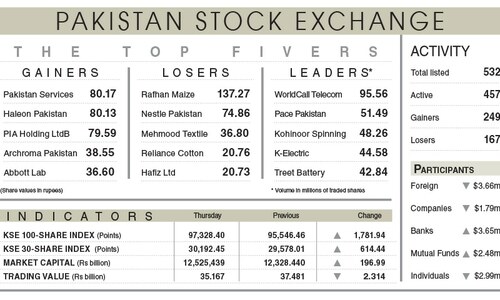LUXEMBOURG, Sept 20: High oil prices are driving up inflation in the eurozone, European Central Bank governing council member and Luxembourg Central Bank governor Yves Mersch said on Tuesday.
Speaking at the presentation of the Luxembourg central bank’s annual report, Mersch said: “The persistent high and rising oil price continues to exert upward pressure on prices and could lead to second round effects.”
Economists have been fretting that high oil prices could not only pushing up energy prices but could also have a knock-on effect, especially on wages if workers clamour for more pay in the face of high higher energy costs.
The ECB is becoming increasingly concerned about such knock-on effects of high oil prices.
ECB president, Jean-Claude Trichet, warned on Wednesday that if crude prices remained high there was a risk of a knock-on effect on wages and “price-setting behaviour” that could drive inflation higher.
The European Union’s statistics agency said on Friday that inflation in the eurozone held steady in August at 2.2 per cent but that the rate was 1.3 per cent when the impact of energy prices were stripped up.
Mersch said that the main impact of oil prices on economic growth would be felt later this year and early next year.
“I believe that figures for this year will be more influenced by the revision of the figures of the first quarter than by the immediate effect of oil prices, which will be more felt towards the end of this year, maybe the fourth quarter and then the first quarter of next year,” he said.
Mersch added: “Economic activity in the eurozone remains moderate, despite historically low interest rates.”
He said that although the eurozone’s potential rate of growth had been estimated at 2.0-2.5 per cent over the past five years, it has now “probably moved towards the lower end of this range”.—AFP














































Dear visitor, the comments section is undergoing an overhaul and will return soon.